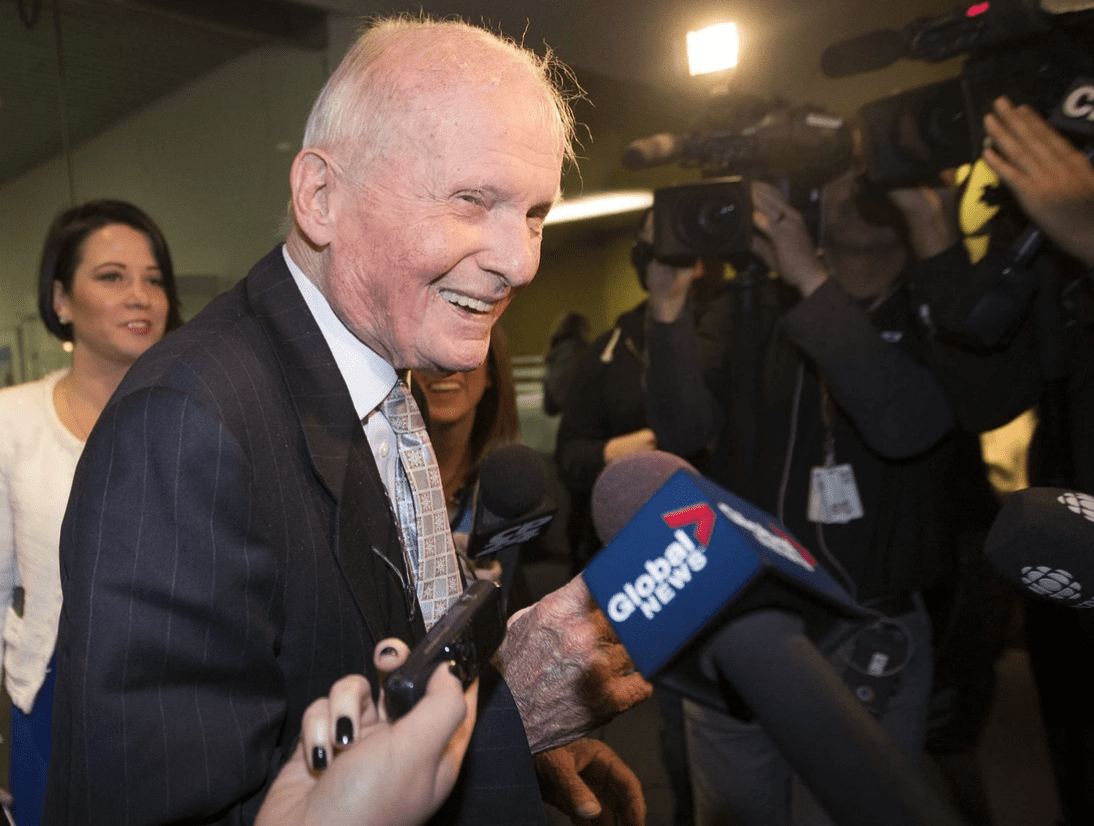Bill Davis, the 18th Premier of Ontario, passed away in his Brampton home on Aug. 8. He was 92 years old.
The tributes came pouring in almost immediately. Conservatives, Liberals, New Democrats and others expressed an element of sadness and disappointment. Whether they agreed or disagreed with his ideas and policies was trivial at that particular moment. Rather, they felt the enormous loss of a Canadian politician of a time gone by who transcended the modern ideological divide and carried himself in a very different manner.
As it happens, Davis’s political career almost ended before it ever began.
His first political run was in the old provincial riding of Peel in 1959. It was a historically safe seat for the Progressive Conservatives. Thomas Laird Kennedy, who had briefly been Ontario’s 15th premier, had held it for 37 of the past 40 years. It should have been a walk in the park for the 29-year-old lawyer to keep Peel in the Conservative family.
Unfortunately, this election was held just after Progressive Conservative Prime Minister John Diefenbaker’s controversial decision to cancel the Avro Arrow program. Many Canadians were furious with the PM and his political brand. They decided to punish politicians running under the federal and provincial PC banner by parking their votes elsewhere. Davis’s Peel riding was one of them. The rookie politician had to fight, scratch and claw his way to victory by a mere 1,203 votes.
That’s the closest Davis came to ever losing an election.
He earned the respect of his colleagues and quickly moved up the party ranks. Premier John Robarts appointed him the Minister of Education in 1962, and added the additional post of Minister of University Affairs two years later. He oversaw the establishment of new post-secondary institutions, including Brock University and Trent University. He developed Ontario’s community college system, and launched the Ontario Institute for Studies in Education and TVOntario.
Davis was elected Ontario PC leader on Feb. 12, 1971 in the old Maple Leaf Gardens. Similar to his first election victory, it was a close result. He edged out Allan Lawrence by a razor-thin 44 votes on the fourth ballot.
Why was he almost defeated? Davis was a Red Tory, or left-leaning Conservative, which appealed to the party establishment. Lawrence was closer to a Blue Tory, or right-leaning Conservative, and drew heavily from like-minded delegates. Ontario PC MPPs mostly leaned to the Red Tory side and supported Davis, which political observers believe was the deciding factor.
Davis wisely realized he had to build a team of rivals a la former U.S. President Abraham Lincoln. He kept the nucleus of his winning team, and brought in members of Lawrence’s team such as Hugh Segal and Norm Atkins. This started off the process of building the body politic, or brain trust, known as the “Big Blue Machine.”
In spite of its name, Davis ran a Red Tory-like government from 1971-1985. For every provincial sales tax reduction, statist policies like rent control popped up. He created more publicly funded layers by introducing several regional governments. He flip-flopped on public funding for Catholic schools. He unnecessarily purchased 25 percent of public energy utility Suncor. He gave out plenty of patronage appointments. And, much like he did as Education Minister, he spent taxpayer dollars like they were going out of style.
Here’s the fascinating thing. For all of his obvious imperfections, he was still extremely popular when he announced his retirement in Oct. 1984. His rivals were fundamentally aware of this. As Bob Rae once told TV host Steve Paikin, “Had he run, he’d have wiped the floor with both [David] Peterson and me.” That’s a future Liberal Premier (Peterson) and NDP Premier (Rae) contained in one sentence.
Indeed, Davis’s life and career transcended modern politics. He believed in the tradition of building bridges with political rivals from all sides of the aisle, including his own. He wasn’t an ideologue, and preferred to let ideas and opinions evolve more naturally. He was open to discussing intriguing proposals, no matter the source. He was warm, friendly and had a good sense of humour. He remained a loyal Conservative, playing a role in the 2003 Canadian Alliance-PC merger and supporting politicians like former Prime Minister Stephen Harper, the late Finance Minister Jim Flaherty, Toronto Mayor John Tory and Brampton Mayor Patrick Brown.
He was also intelligent, compassionate and likeable. Whether he was making a fundraising speech, talking to a person on the street, lightly chastising an opposition MPP or championing the rights of those with disabilities, he did it with grace, charm and humility. You could disagree with his politics, but he wasn’t a disagreeable sort. In fact, it was quite the opposite.
I was fortunate enough to have met Davis on several occasions. He was pleasant and affable, and enjoyed speaking about politics and current events. We were different types of Conservatives, but we always reached common ground on every issue we tackled.
That’s something our political discourse has lost in recent years.
Most of us realize the modern political environment has transformed. The politics of old are gone for good. But if we could ever find a way to retrieve the important element of civil discourse, even just a little, then Bill Davis’s giant legacy in Canadian politics could be cemented for future generations. RIP.
Michael Taube, a long-time newspaper columnist and political commentator, was a speechwriter for former Canadian prime minister Stephen Harper.






